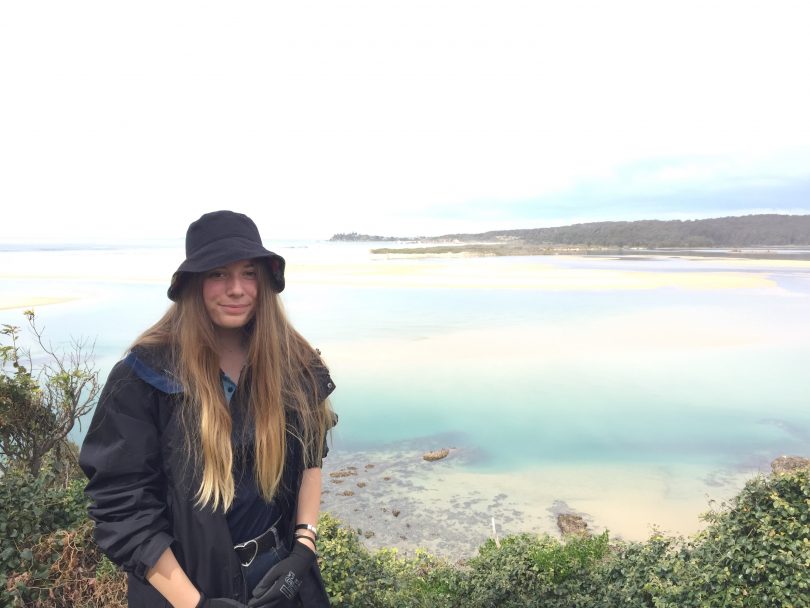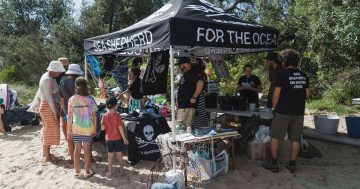
Sarah Burnes spent a day with the shire’s marine debris working group, picking up litter and recording it on her phone app. Photo: Supplied.
Moruya High School student Sarah Burnes says she has a new appreciation for the local environment and the impact plastic is having after helping to collect eight kilograms of rubbish.
“Today I learnt the importance of the saying – If all we do is clean-up, then that’s all we’ll ever do,” Sarah says.
“I was lucky enough to be taken down to an estuary in Moruya, along the beautiful Moruya River, a place that I had driven by so many times but hadn’t realised the true beauty of.
“While down at the estuary, I took part in a thorough clean-up of the area and was surprised by the amount of discarded plastics and other rubbish we found.
“Over 75% of the litter removed was made of plastic, so it is super important that we do our part and stay committed.”
Sarah joined Eurobodalla Shire Council’s Marine Debris Working Group to take part in the clean-up.
The Working Group explores ways to address marine debris, especially plastic items, that threaten the region’s famous marine environment.
The group includes divers, fishers, surfers, school groups, conservation groups, and scientists from the local area and the ACT.
Those involved work together to:
- Clean-up debris from our beaches;
- Track where the debris has come from and work out ways to stop debris from entering the marine environment.
The Working Group is always interested in new members, it’s easy to participate, and you can add the marine debris you collect onto the Australian Marine Debris Database.
“Sorting through the eight kilograms of rubbish, we put it into groups. Then I had the job of adding all the information into a really helpful app that records clean-ups all over Australia,” Sarah says.
The app was developed by the environmental organisation Tangaroa Blue. Sara says the app allows the type and amount of rubbish to be recorded.
“Identifying the source of the debris gives us a chance to stop it,” she explains.
“These clean-up activities are a valuable way to engage the community and raise public awareness, while also providing important information into the condition of surrounding coastal areas.”
Sarah says aside from the environmental benefits, she found the experience of personal value.
“It was a really peaceful, therapeutic experience and I found myself appreciating the surrounding scenery even more by the end of the clean-up. It also made me feel glad to know that I was helping the environment, and it was a bunch of fun.
“Overall it was a really eye-opening experience and I would love to go again.”
To download the Tangaroa Blue app click HERE. For more information about the Marine Debris Working Group and getting involved check Council’s website.








